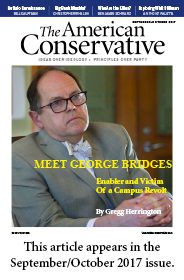He Was a Lifelong Buddy

I got a story, ain’t got no moral:
Let’s call him Thomas. I have known him since I was five. His was the first (and only) black family on my block, circa 1973. They could have timed their arrival better: One of Thomas’s older brothers killed his estranged white girlfriend shortly before or after the move, which may have caused a grumble or two in the neighborhood.
We grew up playing baseball and football at MacArthur Park (where no cakes were ever left out in the rain) every summer morning, noon, and early eve of our boyhoods. In high school Thomas was an all-conference basketball player—long, lithe, with a soft touch—but college was not in his future.
Thomas’s father, with whom he was very close, died when Thomas was barely into adulthood, and the son took to drink. Boy, did he take to it. He had some brushes with the law, but they were alcohol-related, never anything violent. He lost his driver’s license long ago and for the last decade or two has been a regular on our streets, teetering along on his trusty bike (“my horse”), weaving and bobbing, and through the grace of God avoiding serious accident.

When we would see each other on the street we would stop and chat. I never saw him sober, but he would grow almost eloquent talking about the old days, about Sheehan’s towering home runs and Shep’s jarring tackles and how Alex always dropped the long bombs. He was content in this place; he had sojourned in Rochester long ago, but disliked the danger and anonymity of the big city. With a shrug of his shoulders he explained, “I’m a small town guy.”
Thomas hated to beg. Like Frank Sarsfield in Russell Kirk’s ghost story, “Watchers at the Strait Gate,” he kept a running ledger of debts in his head—and he’d pay back his almoners a buck or two at a time. But I’d give him a dollar if he was short, and in the pouring rain I might drive him to the liquor store.
You will tell me that I should have lectured him, driven him to rehab, arranged for an intervention. Sure.
In March 2016 the police were called to Thomas’s boyhood home, where he lived still with his elderly and ailing mom (who has since died). In the wee hours of the morning, Thomas and one of his brothers were quarreling. The details are murky. The law claimed that Thomas had a knife, though none was ever found at the scene. A police officer entered the home. The officer reported that Thomas approached him with the knife, so he wisely stepped outside. Thomas retreated to his room upstairs. He finally responded to entreaties to surrender, though—according to police—he was not following directions. He was tasered and taken to county jail, his domicile for the next 16 months. (He couldn’t meet bail, and his stay was extended when he accepted and then rejected a plea deal that would have sent him to prison for three and a half years.)
The background noise to all this emanated from Ferguson, Dallas, and Baton Rouge. “You got bad timing,” I said when I first visited Thomas in jail. He smiled ruefully.
“I’m not violent,” he said. “You know me, Billy. I never did anything violent. I won’t plead to that. I got nephews and nieces in law enforcement. I respect them.” So he rolled the dice on a trial.
From my previous experience as a grand-jury foreman I told him to urge his public defender to fill the jury with as much youth, insolence, marginality, and as many tattoos as possible. No old guys, please. And cut the ponytail.
His attorney never called a single witness. The officer’s word was all the jury heard. Despite the evidentiary lack of a weapon—reasonable doubt, anyone?—Thomas was found guilty of menacing a police officer. He was sentenced to three years, and with time already served he’ll likely do 14 months in a state prison hellhole.
I know the police officer’s wife, a lovely and talented young woman. The district attorney is a straight arrow and a friend who appeared in the play I wrote for the county’s bicentennial. Thomas is a lifelong buddy; his mistakes make no difference to me.
There are no bad guys in this story. Only, from my point of view, good people whose paths crossed in unfortunate ways. But I know one thing: Thomas does not belong in a cage.
Bill Kauffman is the author of eleven books, among them Dispatches from the Muckdog Gazette and Ain’t my America. He also wrote the screenplay for the feature film Copperhead.
Comments